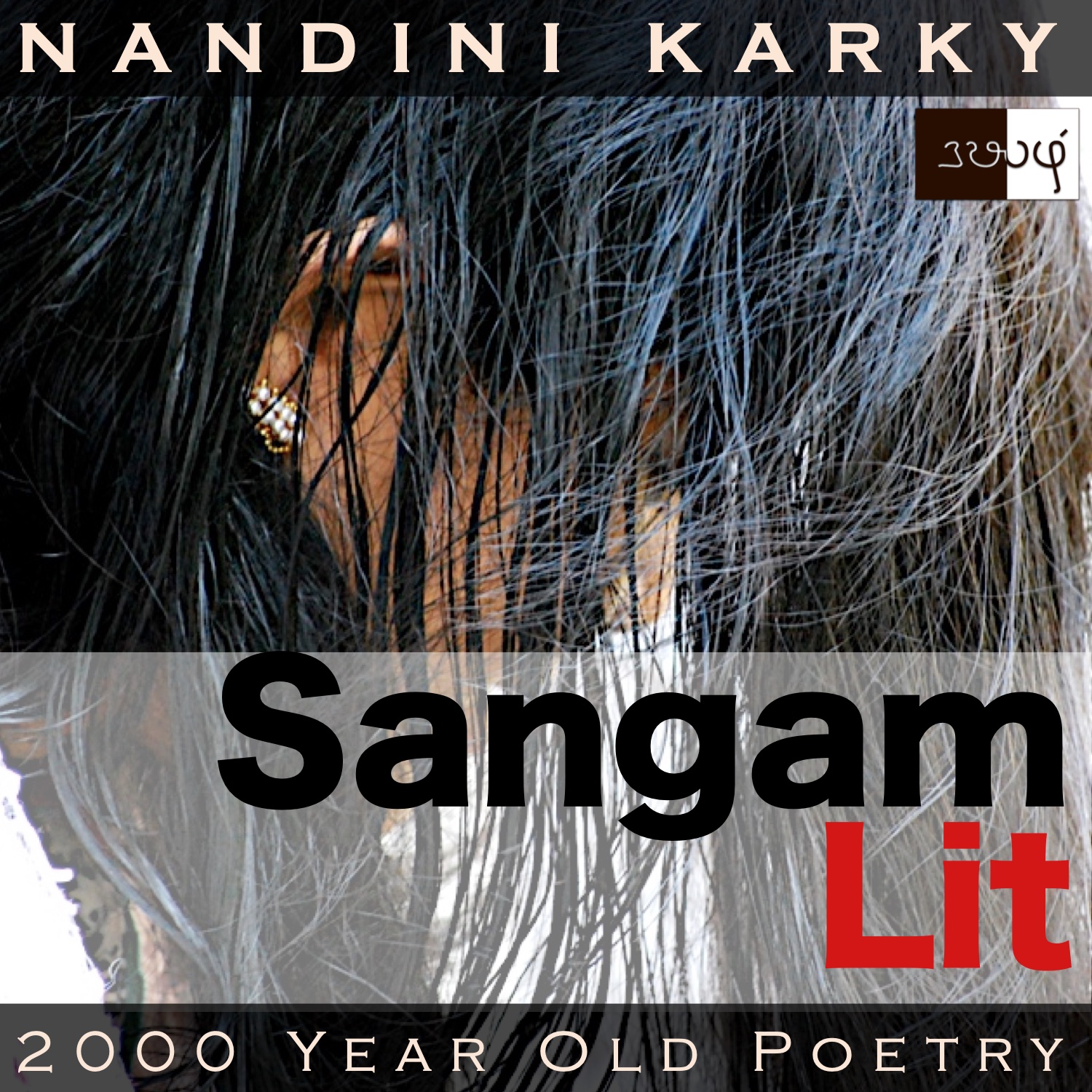Podcast: Play in new window | Download
Subscribe: Apple Podcasts | Spotify | Amazon Music | Android | iHeartRadio | TuneIn | RSS | More

In this episode, we perceive the passionate recollection of a past joy, as portrayed in Sangam Literary work, Kurunthogai 116, penned by Ilangkeeranaar. Set in the mountains of ‘Kurinji’, the verse speaks in the voice of the man to his heart, delighting in the memory of his lady’s tresses.
யான் நயந்து உறைவோள் தேம் பாய் கூந்தல்,
வளம் கெழு சோழர் உறந்தைப் பெருந் துறை
நுண் மணல் அறல் வார்ந்தன்ன,
நல் நெறியவ்வே; நறுந் தண்ணியவே.
‘Wavy and black’ is the texture and hue of this one! Who is being talked about, becomes clear in the words ‘யான் நயந்து உறைவோள்’ meaning ‘the one I desire and the one whom I reside in’, expressing how a beloved is the abode of the one who loves. Following the subject, we get to see the object on which spotlight falls and this is captured in ‘தேம் பாய் கூந்தல்’ meaning ‘tresses around which bees swarm’. Next, we see references to the famous ‘Cholas’ in ‘வளம் கெழு சோழர்’ meaning ‘the rich Cholas’ as well as their fertile town of ‘உறந்தை’, which correspond to the present-day town of ‘Uraiyoor’, in the vicinity of Thiruchirapalli district of Tamilnadu. The phrase ‘நுண் மணல் அறல்’ talks about ‘the fine black alluvial soil, which has ripples of the river’s journey’ imprinted on it. Ending with the words ‘நறுந் தண்ணியவே’ meaning ‘fragrant and moist, they are’, the verse invites us to join in the joy of this verse!
River sands and fragrant tresses seem to sing heartfelt praises! The context reveals that the man had met the lady in the mountains and fallen in love with her. To his joy, the lady too reciprocates his feelings and unites with him. One day, after their union, the man says to his heart, “The bee-buzzing tresses of the one I love and reside within, have the excellent nature of fine, black sands with wavy ripples, found in the domain of the prosperous Cholas in their huge river town of ‘Uranthai’. Indeed, so fragrant and cool, those tresses are!” With these words, the man is relishing the memory of his happy time with the lady.
To perceive more than the translation of the man’s words, let’s listen to him closely. The man starts by making clear he’s talking about the lady who has won his heart and in her, he finds himself taking residence. Then, he turns to talk about her tresses and connects a curious adjective ‘bee-swarming’ to the same. When we take in this expression from a modern point of view, it seems rather unpleasant to have bees laying siege to someone’s head. However, we should see with the eyes of this romantic, who means that those tresses are so fragrant that bees around are confused, making them pounce on the same, as if they were flowers in the breeze. After this, the man talks about the river town of ‘Uranthai’ in the domain of the rich Cholas and mentions in particular, the rich, black sands that are found on the banks, imprinted with the wavy path of the river’s flow. And, this rich black soil, the man places in parallel with the lady’s thick hair. He ends by delighting in the fragrance and coolness of those tresses!
Travelling to the town of ‘Uranthai’ mentioned here, we can see it’s the Cauvery delta that the man is talking about. On researching the type of soils found in this Cauvery river basin, I learnt that in the vicinity of Thanjavur, black soil is predominantly found. The rich alluvial soil that makes this region, the rice bowl of Tamilnadu, is the same we find referred to, in this ancient verse. The twin images of a black soil shore with imprints of the Cauvery and a lady’s thick tresses stand testimony to the Sangam poets’ stunning powers of connecting disparate things to convey the essence of thought. Approaching this verse from another angle, it seems to me that the man is indirectly indulging in the modern practice of gratitude meditation, wherein one prolongs a previous joy by recollecting it and dwelling in it, with all their senses. Joy is indeed so fleeting – the taste of a fruit, the smell of a flower, the sound of a song, the touch of a beloved – but if we too can dwell in the joy a little longer, like the man in this verse, by recollecting the event and all its associated emotions, perhaps we can extend our joys a little longer in our dragonfly lives!




Share your thoughts...